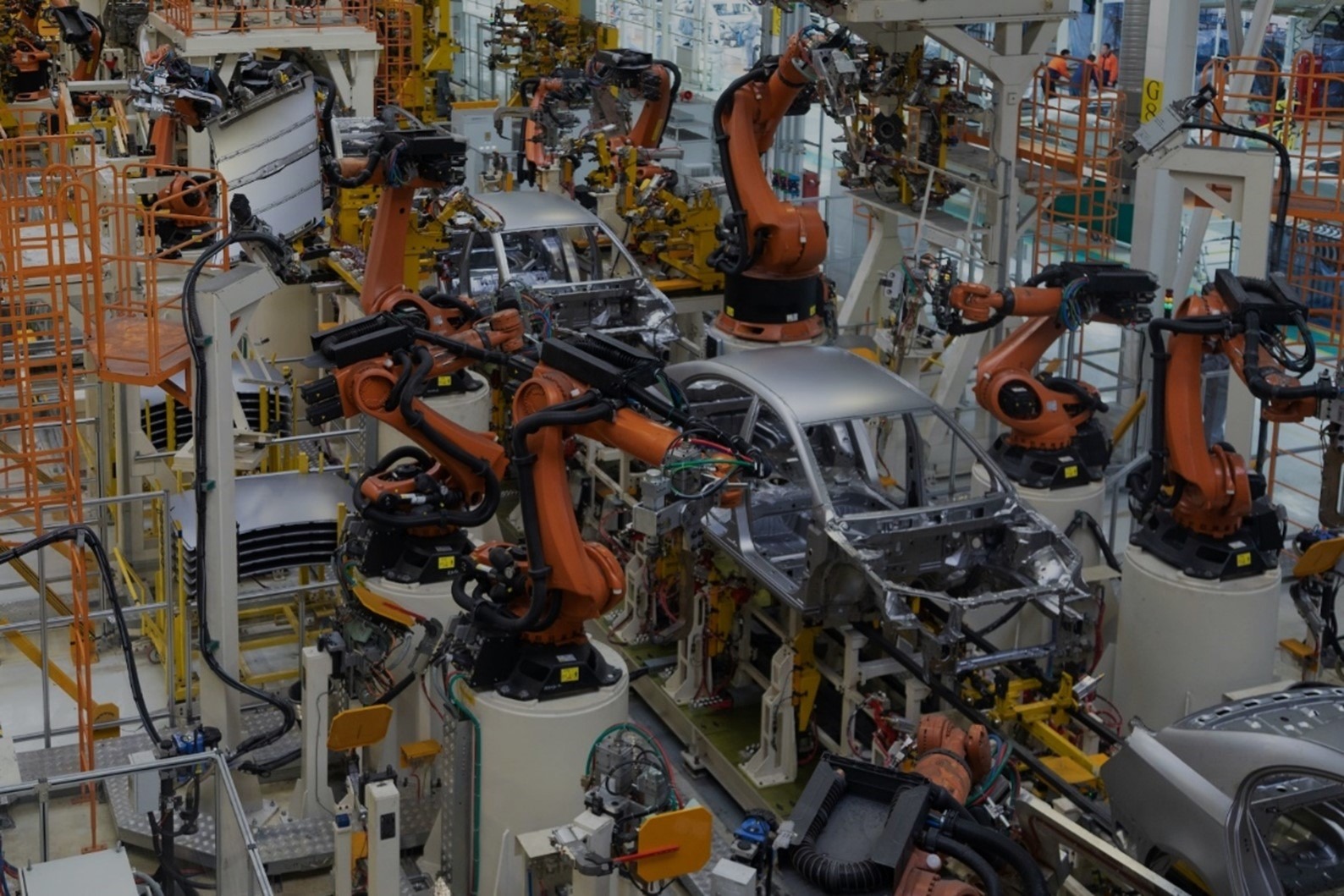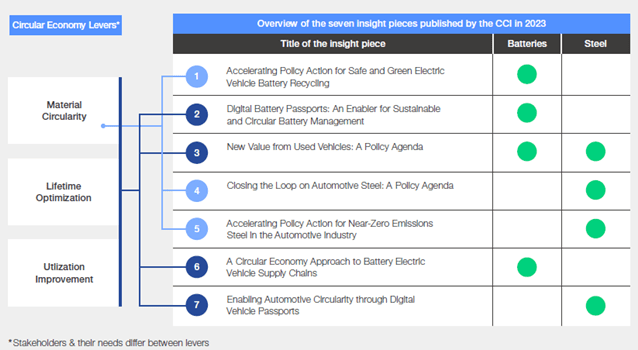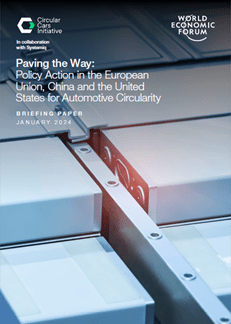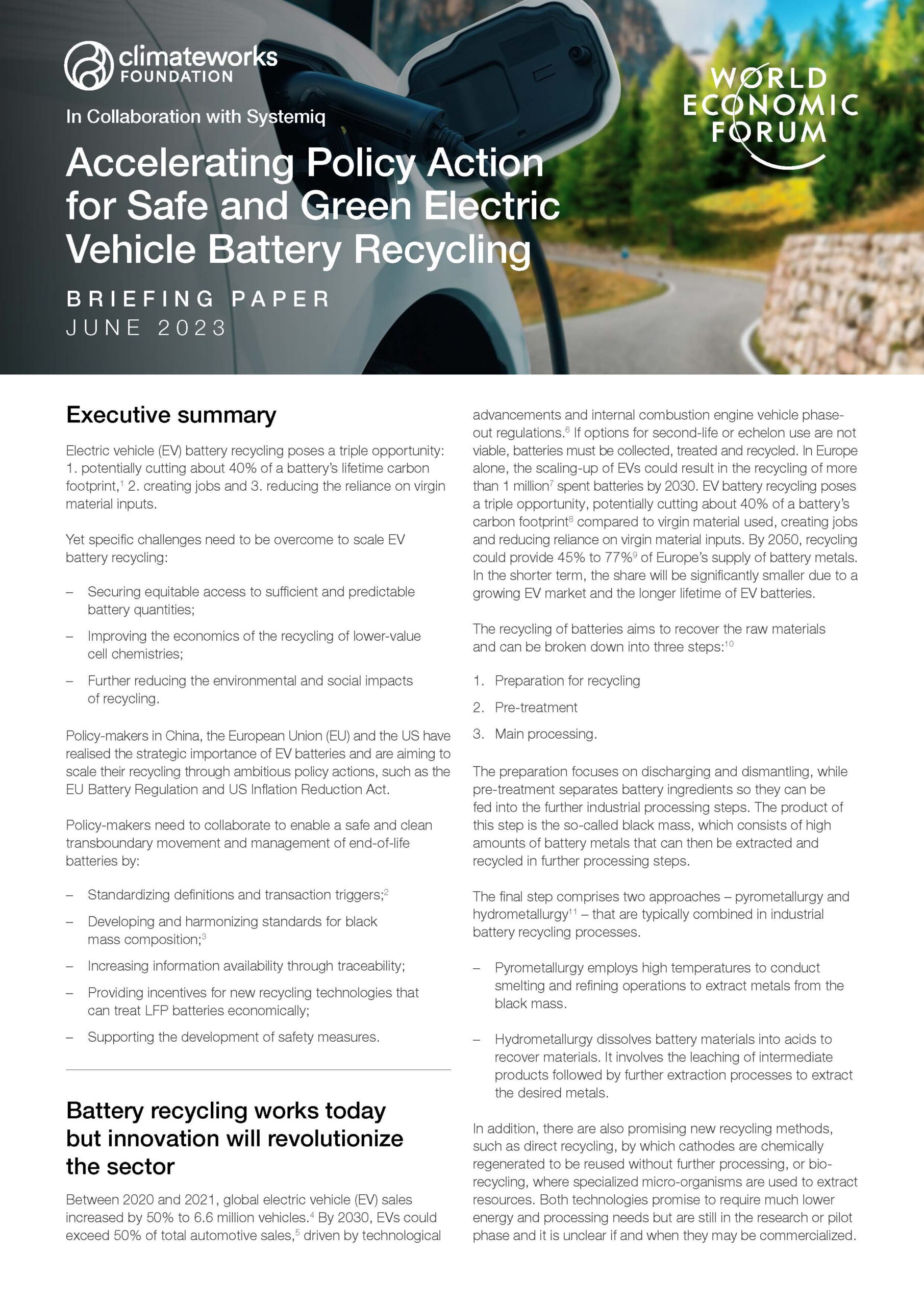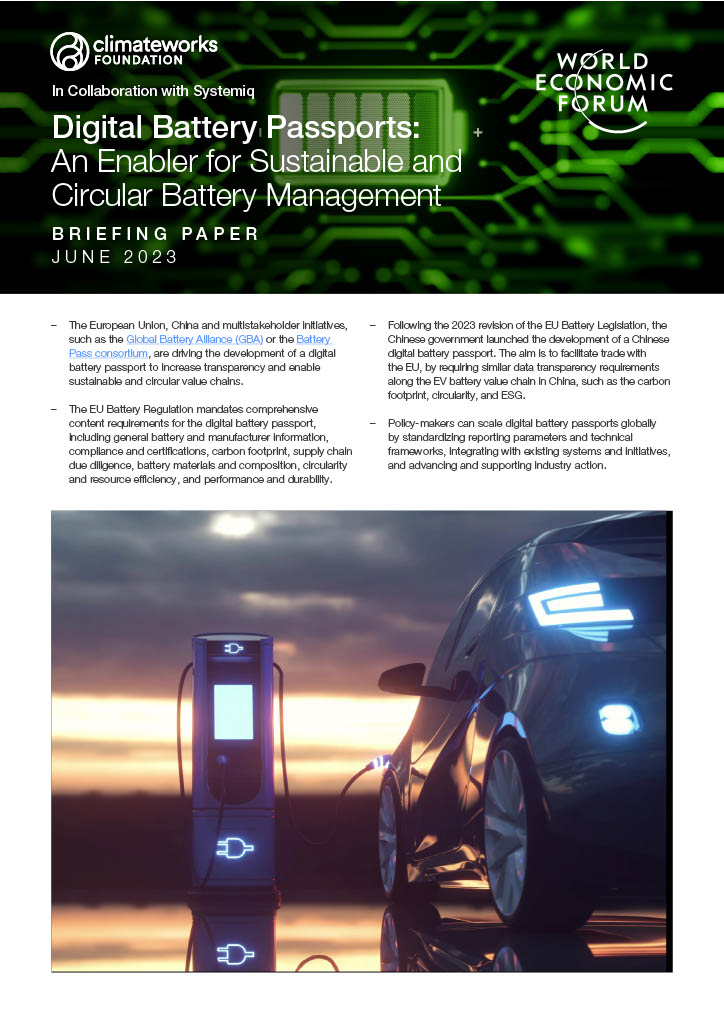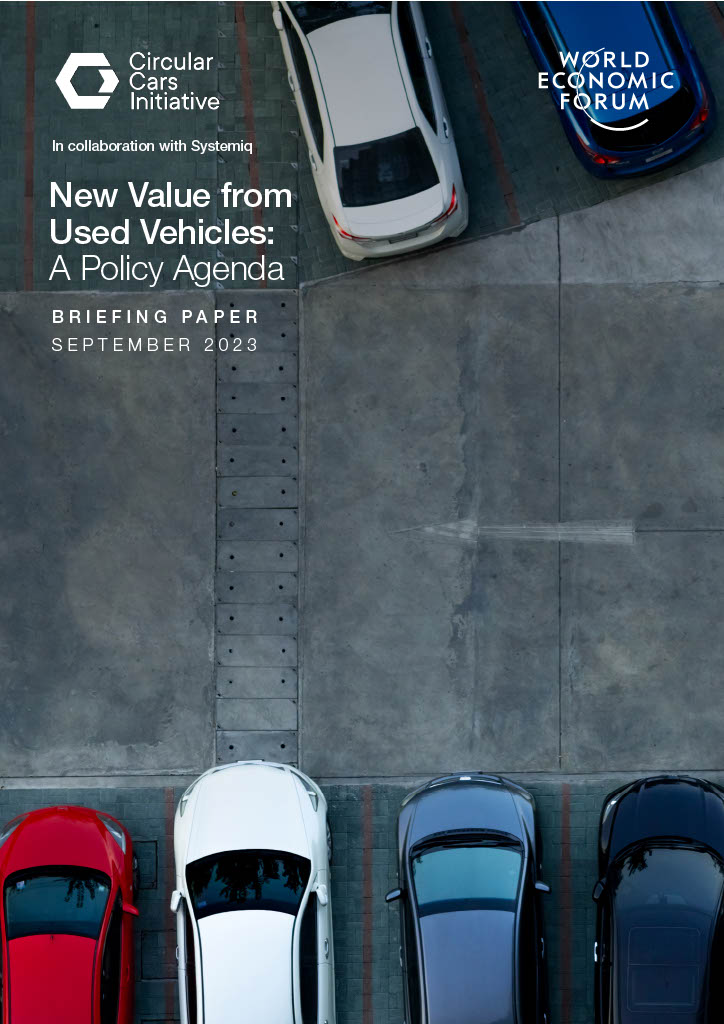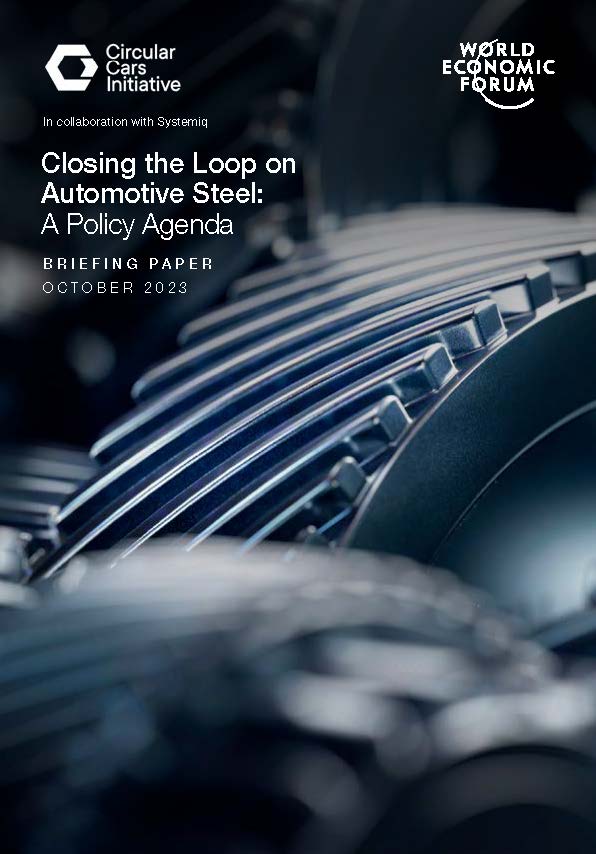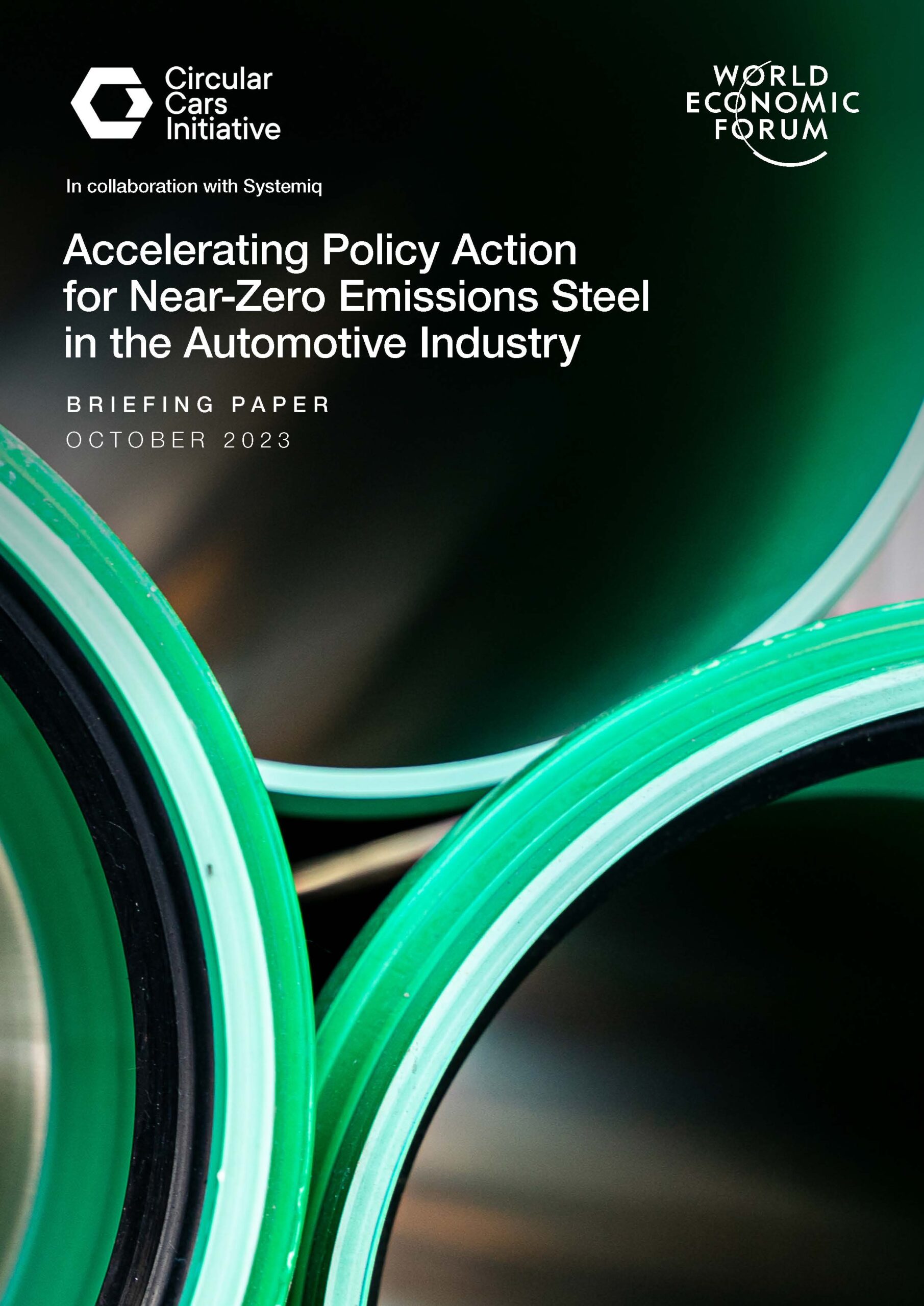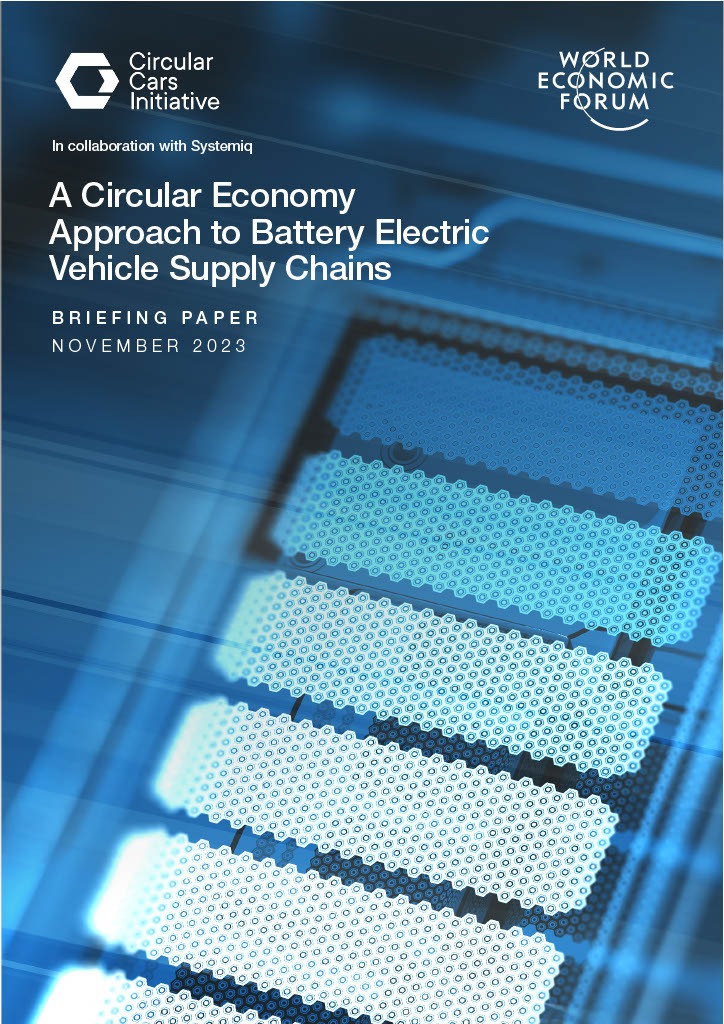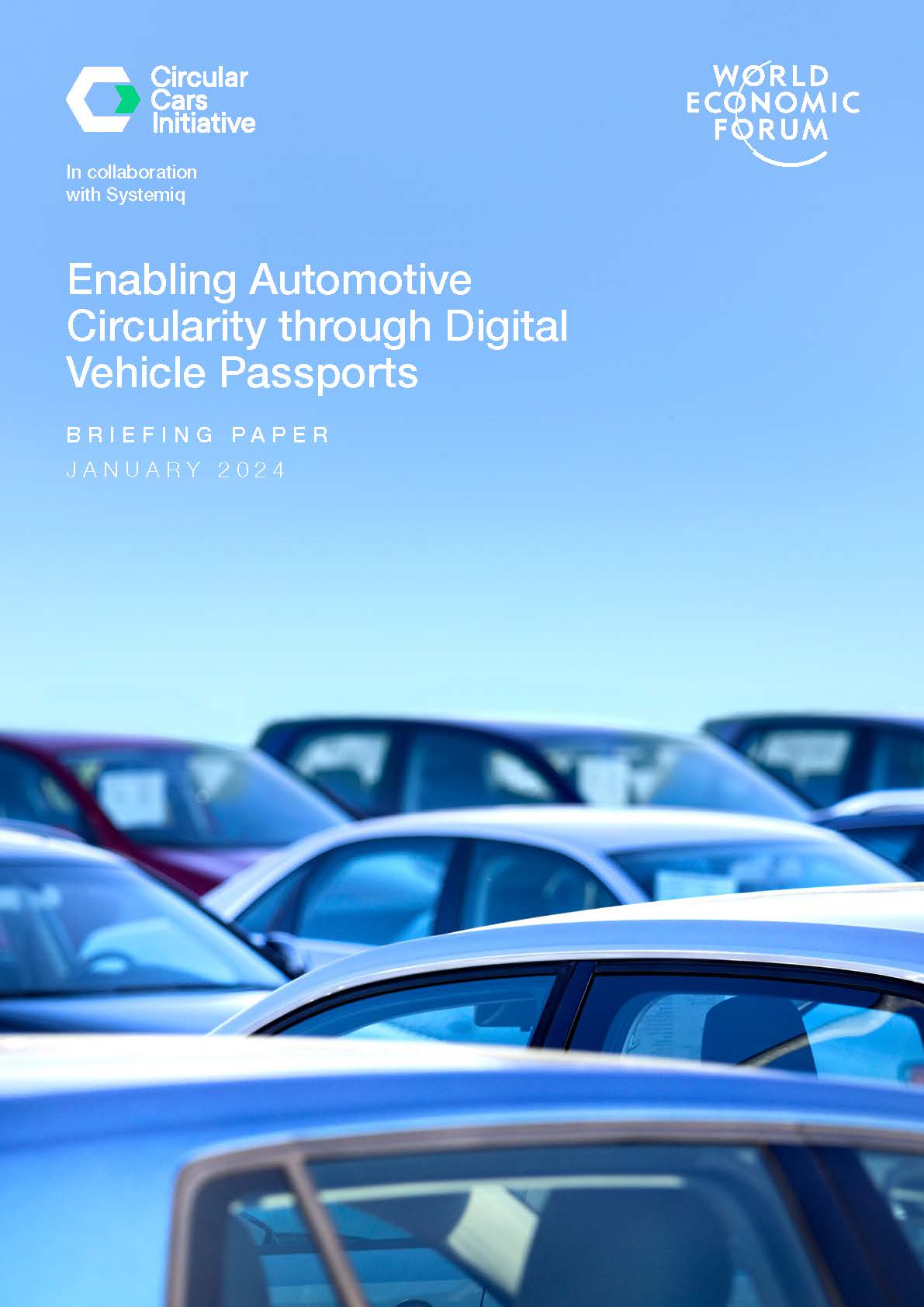Electric (EV) and internal combustion engine (ICE) vehicles need large amounts of aluminium, steel and other materials, resulting in Scope 1, 2 and 3 carbon emissions. For EVs, the proportion of lifetime emissions from manufacturing is higher than for ICEs.
The industry must work with policy-makers to tackle these emissions embedded in materials and manufacturing. A series of policy papers, produced by the Circular Cars Initiative, adds up to a framework of policy principles for the sector.
As co-founder and lead of the CCI policy workstream, Systemiq developed “Paving the Way: EU Policy Action for Automotive Circularity” (2021). Endorsed by EU Commissioner for Transport Adina Valean, this analysis provides a comprehensive review of the EU’s regulatory activities on automotive circularity and introduces a framework of policy principles which can guide policy making.
Insight briefings for policy-makers in China, US and EU
Building on the 2021 study, Systemiq has developed a series of briefing papers and stakeholder dialogues. These address the knowledge gaps in regionally siloed automotive policy making in China, the US and the EU, with the aim of supporting greater understanding of global policy activities and facilitating efficient, harmonised policy-making for automotive circularity.
The project was conducted in collaboration with the CCI and with funding from the ClimateWorks Foundation. China Automotive Technology and Research Center (CATARC) kindly contributed state-of-the-art insights on the Chinese context.
Paving the Way: Policy Action in the European Union, China, and the United States for Automotive Circularity
This briefing paper concludes and synthesises the series of insight pieces. It suggests that global policymakers consider the four policy development principles developed by CCI. Positive developments are noted in global policy making, but to achieve a low-carbon, resource-efficient automotive sector, policymakers should enhance efforts.
It makes five recommendations for policy action: include scaling digital passports, closing loops on steel and battery material, improve recollection of end-of-life vehicles, and prioritise reuse and repair.
1. Accelerating Policy Action for Safe and Green Electric Vehicle Battery Recycling
EV battery recycling offers the chance to cut as much as 40% of a battery’s lifetime carbon footprint; create jobs; and use less virgin materials and more recycled inputs.
This briefing paper sets out five recommendations for policy-makers on how to develop the framework conditions to enable the safe, green and efficient recycling of EV batteries globally.
2. Digital Battery Passports: An Enabler for Sustainable and Circular Battery Management
Batteries play a critical role in the shift towards low-carbon transportation and renewable energy. The circular and sustainable management of EV traction batteries is essential for meeting net-zero goals and decoupling production from the consumption of finite resources.
This briefing paper outlines how the digital battery passport has the potential to increase transparency across the battery value chain by collecting, exchanging, collating and reporting trusted data.
3. New Value from Used Vehicles: A Policy Agenda
Almost 5 million used light-duty vehicles are exported every year from high-income to low- and medium-income countries.
This paper highlights that the circular economy offers a lens to transform the used vehicles trade from a burden to an opportunity. It provides an in-depth overview of the proposed EU Circular Vehicles Regulation and makes five recommendations to policy-makers in the EU, China and the US for enabling the scaling of circular business models.
4. Closing the Loop on Automotive Steel: A Policy Agenda
At 16% of BEV material emissions, steel is crucial for achieving deep decarbonisation in the automotive sector.
This paper highlights a range of supply- and demand-side measures as well as cross-cutting market enablers that can facilitate the widespread use of secondary steel in automotive applications. The paper makes five recommendations for policy makers in the EU, China and the US.
5. Accelerating Policy Action for Near-Zero Emissions Steel in the Automotive Industry
The automotive ecosystem is uniquely positioned to drive decarbonization in the global steel industry, since it constitutes around 12% of global steel demand. Although the pipeline for near-zero emissions steel projects is growing, planned capacity still falls short of what is needed to put the industry on a path to net zero.
This insight piece sets out three recommendations for how policy-makers can support the commercialization of breakthrough steel projects.
6. A Circular Economy Approach to Battery Electric Vehicle Supply Chains
Critical raw materials including cobalt, copper, graphite, lithium, neodymium and nickel are essential for BEV manufacturing, but face challenges of scarcity and supply chain complexity. A circular economy approach that focuses on rethink, reduce, reuse, and recycle strategies can contribute to addressing these issues.
This insight piece makes five recommendations to enhance supply security through policies and incentives promoting the circular economy.
7. Enabling Automotive Circularity through Digital Vehicle Passports
The European Union recently announced the introduction of a digital vehicle passport to enable repair, remanufacturing, and recycling.
This insight piece argues that building on this proposal, a holistic digital vehicle passport that integrates upstream, use, and downstream information could be created to become a powerful enabling tool for global automotive circularity; it makes three recommendations to seize this opportunity.
About the Circular Cars Initiative
The Circular Cars Initiative (CCI) connects more than 70 organisations from business, government and civil society, from the entire automotive ecosystem. It aims to accelerate the transition to circular manufacturing and business models within the automotive industry, and thus minimise total life-cycle emissions. CCI was co-founded in 2020 by the World Economic Forum (WEF), the World Business Council for Sustainable Development, EIT Climate-KIC and Systemiq and has been supported by McKinsey & Company and Accenture. Its overarching goal is to facilitate the transition to an automobility system that is firmly grounded within a 1.5°C scenario.
To find out more about Systemiq’s work on automotive circularity, contact Tilmann Vahle or Carl Kühl.

